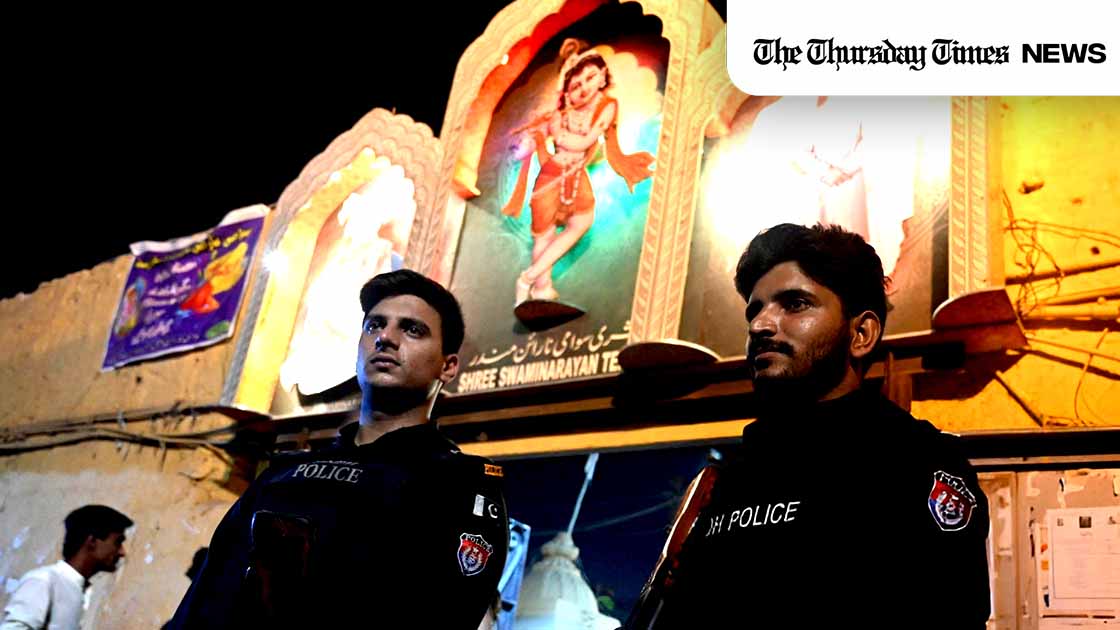NAROWAL (The Thursday Times) — The Baoli Sahib temple, a significant place of worship for Pakistan’s Hindu community, is finally being restored after six decades of neglect. The temple, located in Zafarwal town in the Narowal district of Punjab, had been rendered dysfunctional in 1960, leaving the Hindu community in the region without a dedicated place of worship for more than 60 years. This long-awaited reconstruction marks an important step in preserving religious and cultural diversity in Pakistan.
Evacuee Trust Property Board leads restoration
The Evacuee Trust Property Board (ETPB), a federal body responsible for managing minority worship places across Pakistan, has taken the initiative to reconstruct the Baoli Sahib temple. The restoration process began after the allocation of significant funds from the government. Situated on the western bank of the river Ravi, Narowal has historically been home to a large Hindu population. However, the temple’s closure and subsequent decay left local Hindus without a proper place for their religious practices.
The initial phase of reconstruction involves securing the temple grounds, spanning over four kanals, with a boundary wall. Once the restoration is complete, the temple will be handed over to the Pak Dharamsthan Committee, which oversees Hindu religious affairs in Pakistan.
Long-awaited efforts to revive Hindu worship sites
The closure of the Baoli Sahib temple in 1960 was part of a broader trend that saw the neglect and decay of many Hindu religious sites in the region after the partition of India and Pakistan. The Narowal district, which once had 45 Hindu temples, gradually lost all its active places of worship. This led the local Hindu community, numbering over 1,400 in Narowal alone, to either conduct religious rituals at home or travel to other temples in Sialkot and Lahore.
For over 20 years, the Pak Dharamsthan Committee has been advocating for the restoration of the Baoli Sahib temple. According to Ratan Lal Arya, former president of the committee, the ETPB’s control over the temple after its closure led to its deterioration, leaving the community without a central place of worship. The current reconstruction project is seen as a long-overdue step towards addressing the needs of Hindus in the region.
Government steps towards religious preservation
The restoration of Baoli Sahib temple is part of a broader effort by the Pakistani government to address minority communities’ concerns. Shoaib Siddal, chairman of the Supreme Court’s One Man Commission, and Manzoor Masih, a member of the National Commission of Human Rights, have played pivotal roles in pushing forward this project. Their involvement signifies the importance of this restoration as a symbol of Pakistan’s commitment to preserving minority heritage and fostering religious harmony.
According to Sawan Chand, the current president of the Pak Dharamsthan Committee, the restoration of the Baoli Sahib temple fulfils a long-standing demand from the Hindu community. Once complete, it will provide a central location for religious ceremonies and celebrations, reinforcing the community’s connection to its cultural roots.
The Hindu community in Pakistan
Hindus make up the largest minority community in Pakistan, with estimates suggesting their population exceeds seven million, although some within the community claim the number is even higher, reaching over nine million. The majority of Pakistan’s Hindu population resides in the Sindh province, where they live alongside their Muslim neighbours, sharing cultural traditions and languages.
While Sindh remains the focal point of Hindu life in Pakistan, smaller communities exist across other provinces, including Punjab, where Narowal is located. For these communities, access to temples like Baoli Sahib is essential for maintaining their religious practices and cultural identity.





